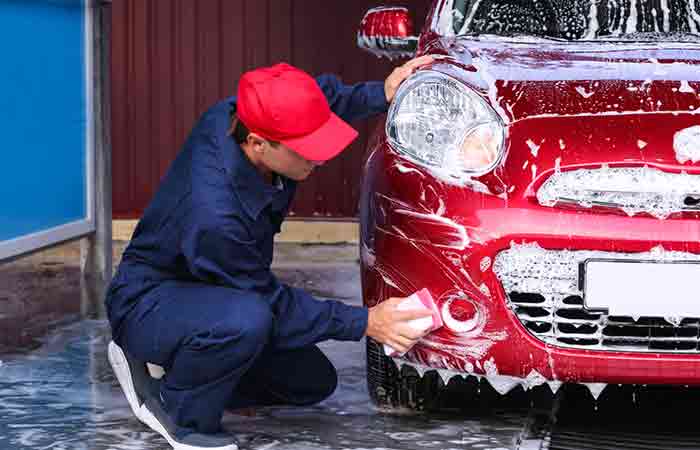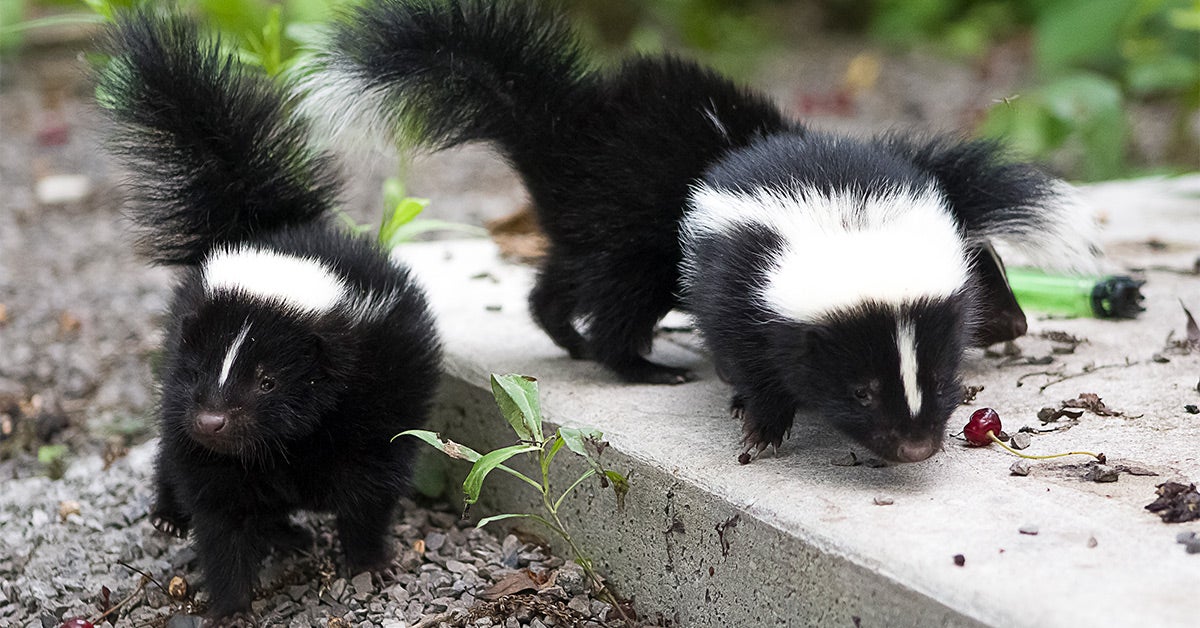Imagine driving down the highway, windows rolled down, and then suddenly being met with the pungent stench of skunk spray. Whether you’re the unfortunate victim of a skunk encounter or your beloved pet had an unpleasant run-in, getting rid of that lingering odor from your car can be a daunting task.

Image: www.stylecraze.com
Fret not, dear readers! In this comprehensive guide, we will embark on an olfactory adventure, exploring effective methods to eliminate skunk smell from your automobile, leaving it smelling fresh and pristine once more.
The Chemistry of Skunk Spray
Before we dive into the cleaning process, let’s understand the culprit behind that pungent odor: skunk spray. Skunks produce a milky, oily liquid composed of sulfur-containing compounds called thiols, which emit a highly volatile and unpleasant scent. These thiols are not water-soluble, meaning they’re not easily washed away with ordinary cleaning agents.
Neutralizing the Odor
The key to neutralizing skunk smell lies in breaking down the thiols responsible for the odor. This can be achieved through oxidation, a chemical process that adds oxygen to the molecules.
- Hydrogen Peroxide: Hydrogen peroxide (3%) can be safely used to oxidize thiols. Mix one part hydrogen peroxide with three parts water and apply it to the affected area. Allow it to sit for 15-20 minutes before rinsing thoroughly.
- Baking Soda: Baking soda (sodium bicarbonate) neutralizes acids and helps absorb odors. Sprinkle baking soda over the sprayed area and leave it overnight. Vacuum it up the next day.
- Vinegar: White vinegar (5%) can neutralize thiols and eliminate odors. Mix equal parts vinegar and water and spray it onto the affected area. Wipe it off after a few minutes.
Additional Tips and Expert Advice
- Absorbents: Place absorbent materials like baking soda or activated charcoal in the car to absorb odor. Replace them frequently.
- Aeration: Open windows and doors whenever possible to allow ventilation. Avoid using fans, as they can spread the odor.
- Professional Ozone Treatment: If home remedies fail, consider hiring a professional for an ozone treatment. Ozone is a strong oxidizer that can effectively eliminate odors.
Remember to wear gloves and protective clothing when using any of these cleaning solutions.

Image: www.healthline.com
Frequently Asked Questions
- Can I use bleach to clean skunk spray?
No, bleach should not be used as it can react with thiols to create an even stronger odor. - How long will it take to get rid of the skunk smell?
Depending on the severity of the spray and the effectiveness of your cleaning method, it may take several days or even weeks to fully eliminate the odor. - Can skunk spray damage my car’s interior?
Yes, skunk spray can damage leather, upholstery, and other materials in your car’s interior. It’s important to clean the area promptly to minimize potential damage.
How To Get Skunk Smell Off A Car
Conclusion
With the right cleaning methods and a bit of patience, you can effectively banish the lingering skunk smell from your car. Remember to address the odor source promptly to prevent it from becoming a stubborn problem. By following the tips and advice outlined in this guide, you can enjoy a fresh and odor-free driving experience once more.
And there you have it, fellow motorists! Now go forth and conquer those pesky skunk odors, ensuring your car remains a sanctuary free from unexpected olfactory surprises.
So, dear readers, if you have ever been plagued by the pungent aroma of skunk spray, share your experiences and cleaning methods in the comments below. Together, we can create a collective knowledge base for combatting this olfactory nemesis!